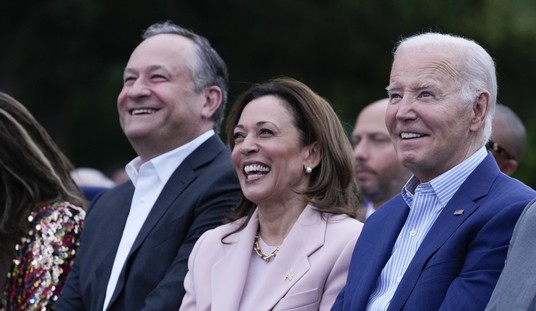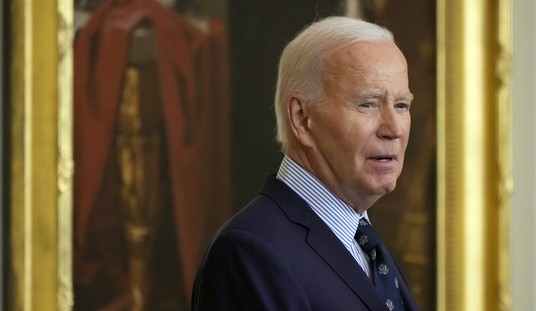At 5 pm Monday, the Senate Foreign Relations Committee is poised to do something they’ve never done before: let a nominee for Secretary of State squeak through by the skin of his teeth rather than robustly confirm him. The pushback against current CIA Director Mike Pompeo is a bit baffling, writes syndicated columnist (and former George W. Bush speechwriter) Marc Thiessen.
For the first time in the history of the republic, it appears increasingly likely that a majority of the Senate Foreign Relations Committee will vote against the president’s nominee for secretary of state. If this happens, it would be a black mark not on Mike Pompeo’s record, but on the reputation of this once-storied committee.
There are no instances of a secretary of state nominee ever receiving an unfavorable committee vote since such votes were first publicly recorded in 1925 (before that, the committee voted in closed session). Democrat John Kerry was approved in a unanimous voice vote, including from Sen. Rand Paul, R-Ky., who opposes Pompeo. Democrat Hillary Clinton was approved 16 to 1, despite concerns about foreign donors to the Clinton Foundation. Madeleine Albright was approved unanimously, with the strong support of my former boss, the committee’s conservative then-chairman, Sen. Jesse Helms, R-N.C., who called Albright “a tough and courageous lady” and voted for her despite saying that she was “sincerely wrong” in some of her foreign policy views.
…
There is simply no excuse for this. There are no ethical questions hanging over Pompeo’s nomination. He has engaged in no disqualifying personal conduct. And no one questions that he is extraordinarily qualified for the job. Indeed, Sen. Ben Cardin, D-Md., said that Pompeo “has a clear record of public service to his nation — in uniform, in Congress, and as the director of the CIA.” Sen. Chris Murphy, D-Conn., said he believes that Pompeo “will work hard to restore morale at State and work to supplement, not atrophy, the diplomatic tools at the Secretary of State’s disposal.” Yet both are voting against him. Indeed, nine of the committee’s 10 Democrats have already declared their opposition to Pompeo — including two, Tim Kaine, D-Va., and Jeanne Shaheen, D-N.H. — who voted for him to lead the CIA.
Their opposition came just as President Trump was preparing for a high-stakes nuclear summit with North Korean leader Kim Jong Un. Pompeo recently returned from North Korea, where he met with Kim and laid the groundwork for this historic meeting. Democrats ought to ask themselves how their actions will be seen in Pyongyang. To deliver such an undeserved rebuke to Pompeo at such a critical diplomatic moment would be a shameful abdication of the committee’s responsibilities.
As frustrating as it is, Sen. Rand Paul’s opposition isn’t that surprising. He’s consistent in his principled libertarianism, even if it doesn’t always make the most sense for the country and is clearly mostly about playing to his base. But to block Pompeo, as Paul and most Democrats plan on doing Monday, is playing fast and loose with an extremely important cabinet vacancy that needs to be filled yesterday. As USA Today notes, there’s a void at the State Department and Pompeo — while they acknowledge disagreeing with some of his more hawkish policy ideas — is not objectionable as a replacement for former Secretary of State Rex Tillerson.
Unless a nominee has clear ethical or competency failings, presidents should be accorded wide latitude to select top aides whom they trust and agree with. Pompeo passes that test and merits approval.
…Pompeo is no dummy — he graduated from Harvard Law School and at the top of his class at West Point. He served as a cavalry officer in Europe during the Cold War. Crucially, he has promised to reverse the damage done by Tillerson, who implemented a vacuous reorganization that drained talent and grew vacancies at State.
“I’m a talent hawk,” Pompeo testified. “I will find what I believe to be the best fit to execute America’s diplomatic mission around the world and I will encourage, demand, cajole them to come join the team.” Among the first positions to fill, he said, would be ambassador to South Korea.
As of Monday morning and early afternoon, West Virginia Democrat Sen. Joe Manchin and Indiana Democrat Sen. Joe Donnelly both announced their intent to back Pompeo, joining their Democratic colleague Sen. Heidi Heitkamp of North Dakota and very likely putting the nominee over the line toward confirmation.
But the partisanship displayed in blocking Pompeo is something that not enough Americans are privy to, especially when Democrats insist they are not obstructionists. Breaching, as Thiessen says, “two centuries of precedent in which the committee has carefully examined the credentials and qualifications of the president’s nominee for secretary of state [and acknowledging] that the president should have his choice of who should be his chief diplomatic adviser” proves that they are.
Kudos to Sens. Heitkamp, Manchin and Donnelly for putting country before party.














Join the conversation as a VIP Member